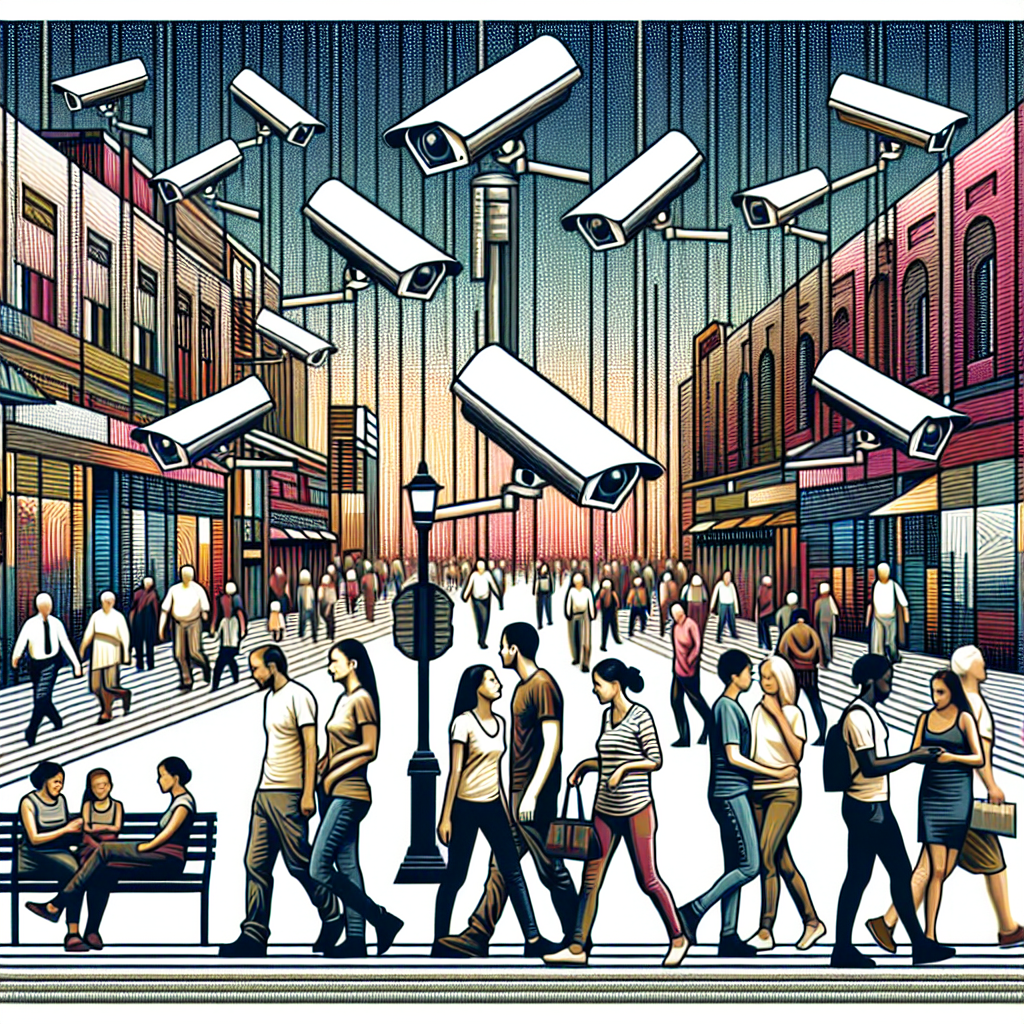Understanding Digital Spying: The Government’s Role in Tracking Online Activities
The Evolution of Digital Spying
In the digital age, technology has significantly outpaced legislation meant to protect personal privacy. The rapid expansion of the internet and mobile connectivity has transformed the landscape of communication and commerce. However, this transformation has also led to governmental agencies increasingly leveraging these technologies for surveillance purposes. Understanding digital spying necessitates a look into its historical context, the current state, implications, and the ethical dilemmas involved.
Historical Context of Government Monitoring
Digital spying can trace its roots back to the very beginning of electronic communications. In the 1960s, the U.S. government created the National Security Agency (NSA), tasked with intercepting foreign communications. The 1970s brought about significant shifts with the advent of the Foreign Intelligence Surveillance Act (FISA), establishing guidelines for government surveillance.
The September 11 attacks of 2001 led to a radical expansion of surveillance programs, justified by the need for national security. Legislation like the USA PATRIOT Act broadened the government’s powers to monitor citizens’ online activities without substantial checks, heralding a new era of digital spying under the guise of ensuring public safety.
Government Agencies Involved in Digital Surveillance
Several key agencies are instrumental in digital spying:
-
National Security Agency (NSA): Focused on foreign intelligence, the NSA monitors global communications, amassing vast amounts of data through program operations like PRISM, which enables direct access to the servers of major tech companies.
-
Federal Bureau of Investigation (FBI): The FBI engages in digital surveillance through warrants issued under FISA, conducting investigations related to national security and criminal activities.
-
Central Intelligence Agency (CIA): The CIA primarily deals with overseas intelligence but has increasingly employed digital tactics for information gathering.
-
Department of Homeland Security (DHS): Monitoring online threats and investigating cyber-crimes form part of DHS’s role, using various platforms for surveillance to safeguard against terrorism and cyber threats.
Methods of Online Surveillance
Governments utilize a variety of techniques to track online activities, including but not limited to:
-
Data Mining: This involves analyzing large datasets to identify patterns related to potential threats. Government agencies use algorithms to sift through public and private data, looking for suspicious activity.
-
Social Media Monitoring: Governments track public social media interactions to gather intelligence on individual and group behavior, often scrutinizing political dissent and monitoring public movements.
-
Internet Service Provider (ISP) Cooperation: ISPs are often mandated to retain user data for a predetermined period. This data may include browsing history, email exchanges, and metadata which can be accessed by government agencies through legal requests.
-
Wiretapping and Eavesdropping: With appropriate legal warrants, agencies can monitor communications on various platforms, ensuring that they collect data from phone calls, email communications, and internet usage.
-
Geolocation Tracking: With the integration of GPS technology in smartphones, governments can track real-time locations of individuals without obtaining direct consent.
Legal Framework and Controversies
The legal framework governing digital spying is riddled with controversy. The balance between national security and personal privacy remains highly debated. Laws like FISA establish guidelines, yet loopholes often allow for expansive interpretation that results in broader surveillance than initially intended.
In landmark cases, courts have ruled that certain practices violate the Fourth Amendment, which protects against unreasonable searches. A significant backlash against the NSA’s practices emerged following Edward Snowden’s revelations in 2013, leading to public outcries demanding reform and transparency.
Implications for Privacy and Security
The implications of government tracking are profound. From a security standpoint, surveillance is often framed as essential for preventing terrorism and other criminal activities. However, concerns regarding the violation of civil liberties overshadow these intentions. An environment where citizens feel they are constantly monitored can stifle free expression, discourage political dissent, and hinder innovation.
The Role of Technology Companies
Technology companies play a pivotal role in the surveillance ecosystem. While corporations like Google, Facebook, and Apple collect user data for marketing and personalization purposes, they are also compelled by law to cooperate with government requests for information.
Some companies have taken steps to enhance privacy and transparency by implementing end-to-end encryption and minimizing data retention. Yet, their reliance on user data for revenue generation complicates their position on privacy protections.
Public Sentiment and Activism
Public sentiment regarding surveillance is steeped in complexity. While some citizens recognize the necessity of monitoring for safety, others express deep concerns about overreach and invasion of privacy. Activism around digital rights has gained momentum, emphasizing the need for stronger regulations and accountability for both governments and tech companies.
Organizations such as the Electronic Frontier Foundation (EFF) and Privacy International advocate for digital privacy rights, urging reforms to safeguard individuals from unwarranted surveillance.
Future of Digital Spying
The future of digital spying is likely to evolve along with advancements in technology. Artificial intelligence (AI) and machine learning may increase the efficiency of surveillance systems, while the growing public awareness of privacy concerns could lead to more robust legislative protections.
As technology continues to intersect with daily life, ongoing dialogs will shape the landscape of digital spying. The balance between a secure society and the right to privacy will remain a critical conversation as laws, technologies, and public opinion continue to evolve.
Conclusion
Digital spying remains a pressing issue in contemporary society, posing challenges that intertwine national security with civil liberties. As technology continues to evolve, the government’s role in tracking online activities will demand scrutiny, transparency, and regulation. Understanding this complex landscape is essential as society navigates the implications of surveillance in a digital world.












Leave a Reply